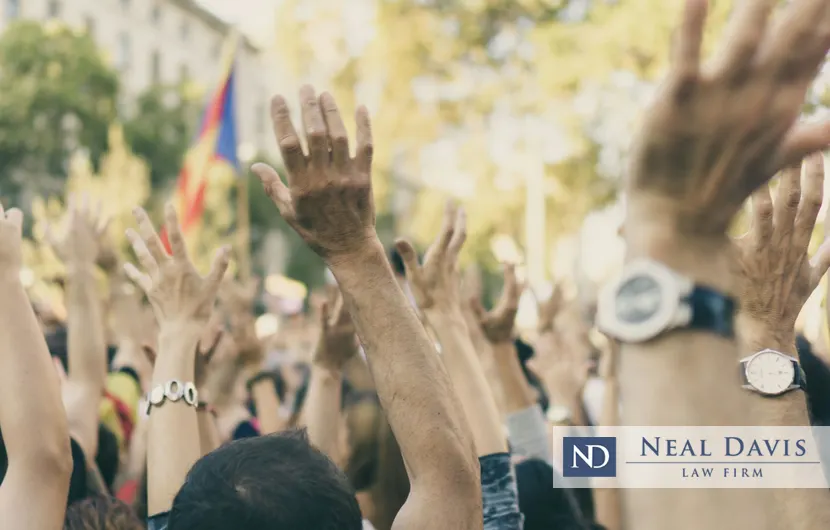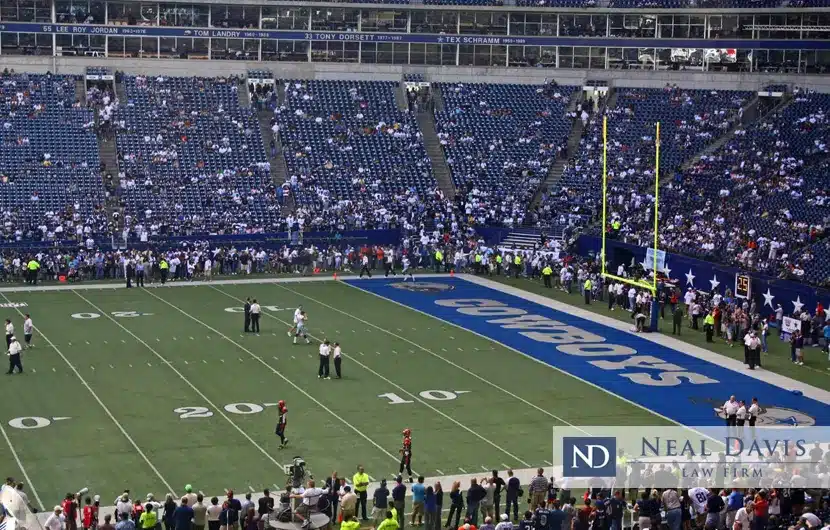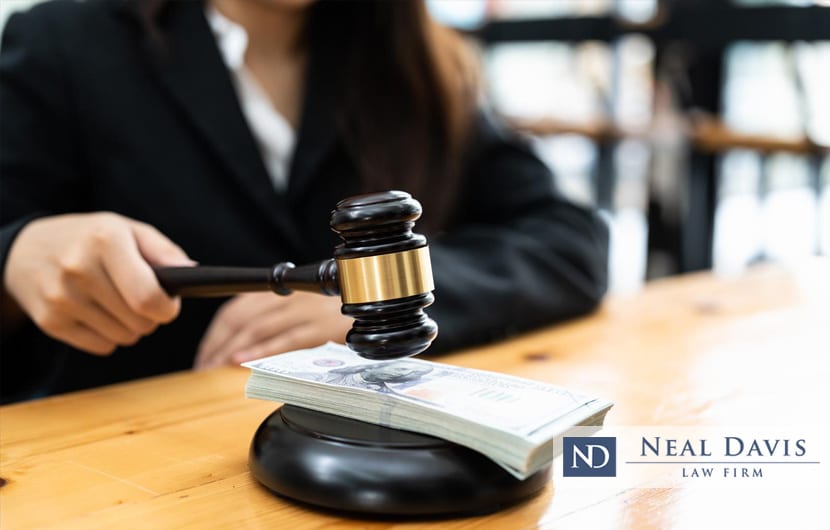Learn about the eight steps in a criminal case – from arrest to sentencing to appeal – so you know what to expect.
If you or a loved one have been arrested, or are currently being investigated for a crime, you probably have a lot of questions, like:
- What are the different stages of a criminal trial?
- How do I know if I’ve been charged with a crime?
- What happens after an arraignment for a felony?
- When can a case be dismissed?
- What is a preliminary hearing and when does it happen?
- How long does a criminal trial usually last?
Confronting the criminal defense process by yourself is a daunting task. You may be feeling intimidated, confused and overwhelmed, especially if you have no prior experience with the justice system.

Fortunately, you don’t have to take on the criminal defense process alone. An experienced criminal defense attorney can help you through this complicated process and ensure the best possible outcome. Talk with our Houston criminal defense lawyers about your concerns and questions.
Schedule an AppointmentAn overview of the criminal defense process in Texas
Investigation
Before you can be arrested and charged with a crime, law enforcement officers must have “probable cause” to arrest you. Investigators from the Harris County Sheriff’s office, local Houston police department or another state or local law enforcement agency may employ various procedures – such as a search warrant, interrogation, seizure of property, etc. – to justify a criminal charge. This is the first step in the criminal justice process.
Many people make the mistake of waiting to contact an attorney after being arrested. However, getting a lawyer involved early in the process during the investigation stage can significantly impact your case in a positive way later on.
Arrest
Once police feel they have probable cause, they will arrest you. Upon being arrested, you will be booked at a local police station or jail. During this process, police will take your fingerprints and photograph as well as record the charges filed against you. You may also be searched and questioned.
Remember, you are under no legal obligation to talk to investigators and are strongly encouraged not to speak with police until your attorney is present. Your constitutional Miranda Rights mean “you have the right to remain silent.”
Arraignment & bail (initial appearance)
The arraignment is your first appearance in court and when formal charges are filed against you. During this brief hearing, which must occur as quickly as possible after arrest, you will appear before a judge with your attorney (if you choose to hire one). The judge will confirm that you are the person being charged with the crime, that you know what crime you are being charged with, and what you plead to the charge – guilty, not guilty or no contest.
Almost all defendants plead not guilty at the arraignment. This gives their attorney more time to prepare their case, even if they plan on pleading guilty later on. If a defendant pleads guilty during the arraignment, they skip straight to sentencing.
The arraignment is also when bail and your next court appearance is set. Bail allows you the freedom to go home during the trial proceedings and the bail amount (an amount of money the court uses to ensure the defendant returns on his or her trial date) is set by the judge.
Pretrial hearings & plea bargaining (grand jury proceedings)
The next step in the criminal defense process is the beginning of pre-trial conferences and hearings, or a Grand Jury proceeding in the case of federal crimes. During these meetings between the prosecution and defense, both parties discuss strengths and weaknesses in the prosecution’s case, pretrial motions as well as indirect factors that pertain to the defendant’s case such as their character, history and reasoning behind committing the crime (if they are guilty).
These factors, and other discussions that often occur during pretrial hearings, can greatly impact a defendant’s plea bargaining leverage.
During the pretrial process is also when the defense lawyer may work out a deal with the prosecutor and police to prevent a trial by getting them to drop the case or having their client plead guilty to a less serious charge. A majority of federal and state criminal cases (90-95 percent) end during the pretrial process due to plea bargaining.
Trial
If the defendant pleads “not guilty” and a plea agreement cannot be reached, the case moves onto the trial phase of the criminal defense process. During the trial, a judge or jury reviews the case to determine whether they think the defendant is guilty or innocent. The trial phase can last anywhere from two months to two years depending on the complexity of the criminal case.
Trial proceedings typically take place in the following order:
- Jury selection. If a jury is presiding over the trial, twelve jurors must be chosen. Both the defense and the prosecution can challenge potential jurors if an individual has preexisting knowledge of the case, if they have a relationship with either parties, or if they are incapable of hearing and understanding the testimony. Either side also has a certain number of “peremptory challenges,” meaning they can remove a juror without providing a reason.
- The prosecution’s case. Once a jury has been selected, the trial proceeds with the prosecution up first. The prosecutor gives their opening statements, then presents evidence against the defendant in the form of witness testimony, letters, photos, security videos, the weapon used, etc.
- The defense’s case. After the prosecution has made their case, it is the defendant’s turn. At this time, the defense lawyer attempts to find holes or weaknesses in the prosecution’s argument by cross-examining witnesses, subpoenaing their own witnesses, providing an alibi, and entering any other evidence that proves his or her client’s innocence.
- Closing arguments. Lastly, after both sides have laid out their case, it is time for the final statements. The prosecution sums up their argument first, followed by the defense. Throughout a trial, all attorneys must follow the rules of evidence as specified by Texas state law.
After these trial proceedings occur, it is time for the judge or jury to deliberate.
Verdict
Following the trial proceedings, the judge or jury comes together in private to decide whether or not they believe the defendant to be guilty “beyond all reasonable doubt.” The deliberation stage may last for minutes or weeks, and the final verdict is read to the defendant in court once a decision has been reached.
The jury’s decision must be unanimous. If a unanimous verdict cannot be reached (known as a “hung jury”), then a mistrial is declared and the prosecution is free to retry the case if they wish to. If the verdict is not guilty, neither the prosecutors nor the court can overturn the jury’s decision and the defendant is cleared of all charges.
If the verdict is guilty, the defendant moves onto the next step.
Sentencing
If you have pleaded guilty, or been tried and convicted by a judge or jury, then you must receive sentencing for the crime you are charged with.
Determining the length and severity of the punishment to fit the crime is a complex process for a judge that involves looking at a defendant’s criminal record, responsibilities, level of remorse and other factors.
All judges, however, are typically bound by standard sentencing guidelines set forth by the state or federal government.
Appeal
If you are found guilty of all or some of the criminal charges, you are entitled to appeal the verdict up to at least one level of appellate court. The Texas Court of Appeals is the mid-level court system that looks for instances of improper procedural issues that have taken place in the initial trial and this court has the power to overturn a lower court’s decision.
The highest court in Texas for criminal cases is the Texas Court of Criminal Appeals, and they take appeal cases from the mid-level court system or direct appeals where the death penalty is a possibility.
“Neal is an honest and very knowledgeable attorney. I highly recommend him. My son was arrested going through the Houston airport and I found Neal. We handled everything over the phone and he went above and beyond what he needed to do to make sure my son was taken care of. From bail to hotel to getting him on a plane home! For that I am truly grateful.”
Houston | Client’s illegal possession of weapons case dismissed
Verified customer
Why hire an experienced criminal defense attorney?
We hope you found this general overview of the criminal defense process in Texas helpful. Keep in mind, however, that the process may vary from case to case and court to court. For this reason, it is imperative that you consult a high skilled and knowledgeable attorney who can give your case the best possible chance at success in each step of the process – from arrest and pretrial hearings to sentencing and appeals.
At the Neal Davis Law Firm, our criminal defense lawyers believe that every individual has the right to a strong defense and a fair trial. Houston defense attorney has over 25 years of experience securing the best possible outcome in thousands of state and federal criminal cases in Texas and throughout the country, including arguing before the Texas Criminal Court of Appeals and appearing as lead counsel in a landmark U.S. Supreme Court case.
We invite you to contact our law firm today to discuss your unique case – we are available 24/7 to provide professional legal assistance. See the resources below to continue learning about criminal defense.






